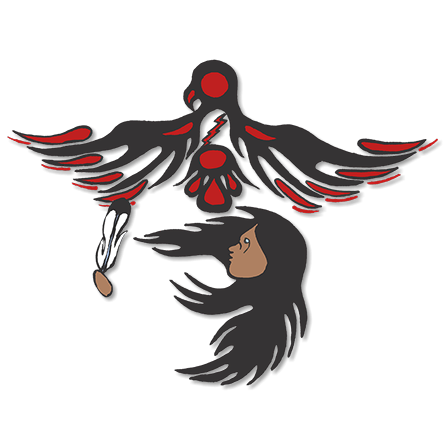Our Story
Breaking the Cycle
TWHLS is a community-driven initiative raised out of concern and recognition of the urgent need to break the cycle of Indigenous women’s over-representation in Canada’s prisons. Indigenous-led, we provide trauma-informed, culturally appropriate services for First Nation (Status and Non-Status), Inuit, and Metis 2SLGBTQIA+ women exiting the justice system. The over-incarceration of Indigenous women is a national crisis. History has revealed the targeted attempts to break down Indigenous Culture and communities. First with the Residential schools, then the 60s scoop and now the over-incarceration of Indigenous women. This targeted bias has robbed children of their mothers, communities of their sisters, aunties, and elders. We believe the best way to reduce the number of Indigenous women in Canada’s jails is to create opportunities for us to thrive .. Read More
Dr. Ivan Zinger. Correctional Investigator of Canada 2016-2017 Annual Report
“For the last three decades, there has been an increase every single year in the federal incarceration rate for Indigenous people ... I cannot help but think that the over- incarceration of First Nations, Métis and Inuit people in corrections is among the most pressing social justice and human rights issues in Canada today.”
Art Solomon, “Kesheyanakwan” (Fast Moving Cloud). Anishinaabe Elder
Woman is the centre of the wheel of life. She is the heartbeat of the people. She is not just in the home, but she is the community, she is the Nation. One of our Grandmothers. The woman is the foundation on which Nations are built. She is the heart of her Nation. If that heart is weak the people are weak. If her heart is strong and her mind is clear then the Nation is strong and knows its purpose. The woman is the centre of everything.
Dr. Ivan Zinger. Correctional Investigator of Canada 21 January 2020
“The Indigenization of Canada’s prison population is nothing short of a national travesty; ...dramatic changes [are needed] to stop the revolving door, better prepare Indigenous offenders to meet the earliest parole eligibility dates and more safely return them to their home communities."
Our Mission
Thunder Woman Healing Lodge Society will promote and provide services for First Nation (Status and Non-Status), Inuit, and Metis 2SLGBTQIA+ Women to focus on their journey to wholeness and balance.
Our Vision
To provide First Nation (Status and Non-Status), Inuit, and Metis 2SLGBTQIA+ women a place in the Greater Toronto Area to heal and reclaim positive cultural identity, rehabilitation and wellness.

Our Mandate
To establish a Healing Lodge for First Nations (Status and Non-Status), Inuit, and Metis 2SLGBTQIA+ women who are in conflict with the law, and for those who have survived intergenerational trauma. To provide cultural support, traditional knowledge and resources, for the advancement of wholeness and balance. To empower First Nations (Status and Non-Status), Inuit, and Metis 2SLGBTQIA+ Women to take their honoured place within their community and culture.
Our Name & Logo
Our logo incorporates a stylized Thunderbird with a figure holding up an eagle feather in prayer. This image symbolizes both our name and the healing that can happen through Indigenous culture and traditions. Our name refers to the story and teachings of the Thunderbird, a powerful, spiritual being described in the Anishinaabe culture and known throughout Turtle Island. Thunderbirds create and control the winds, rain, thunder and lightning; they are creators, messengers, helpers and healers. There are many stories of the Thunderbird’s ability to transform and move between the spiritual and the physical world. The Eagle is another important being in the Anishinaabe world, which are capable of transforming into Thunderbirds to carry messages to Creator. Eagle feathers are symbolic of this relationship. The name THUNDERWOMAN incorporates the transformative, healing and creative spirit of the Eagle, Thunderbird and all our relations’ journeys to walk in balance.

Thunder Woman Healing Lodge Society by artist Mike Ormsby (W’ DAE B’ WAE Anishinaabe name meaning ‘he or she telling the truth’).
In Our Own Words
That the Canadian justice system is failing Indigenous people is plain to see. Indigenous women are vastly over-represented in the prison population overall and systemic bias is clearly visible in custodial sentencing patterns. What is less immediately visible are the upstream and downstream forces contributing to the social determinants of health and of justice for Canada’s Indigenous peoples.
Women’s prisons are places of despair and depression. They are are a continuation of the harm perpetrated by the residential school system and many of the schools’ children and grandchildren are incarcerated now because of violence, substance abuse and crime that is related to the destruction of their families by these very schools. Prisons further break down family life and exacerbate the cycle of poverty, crime and violence both on and off the reserves. Upon release, we see the same marks of the residential schools: Indigenous people marginalized, cut off from their families and culture, and broken families in an uphill challenge to be reunited. Indigenous women’s journeys out of the corrections system are stories of resilience, strength, and determined self-actualization.


